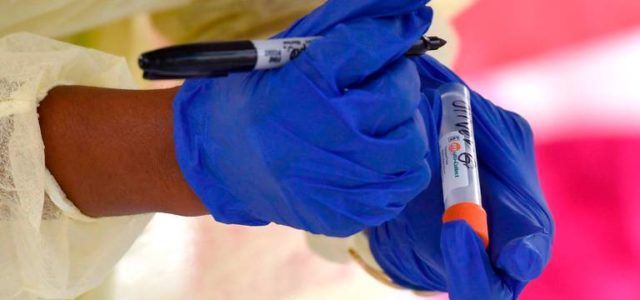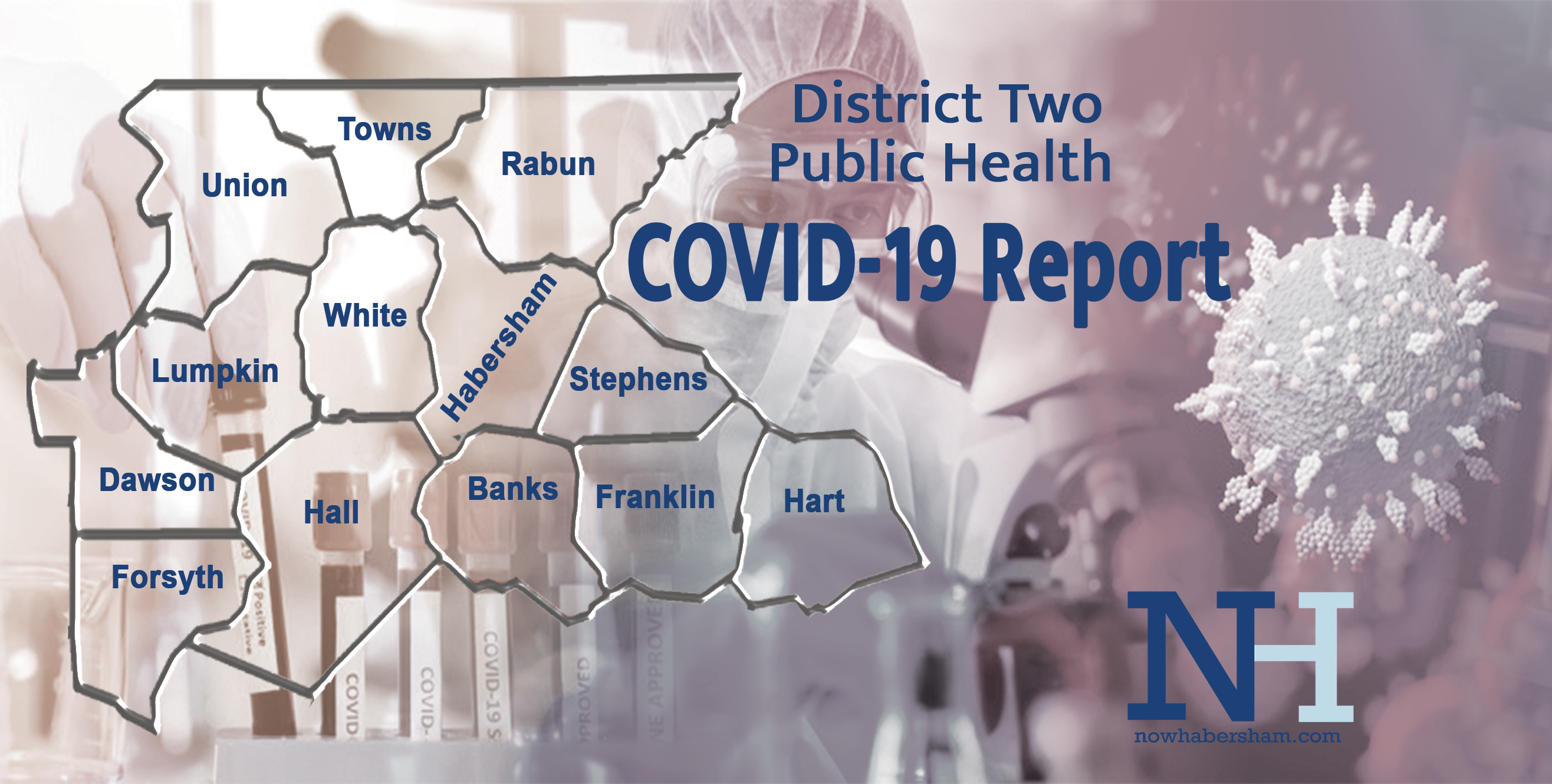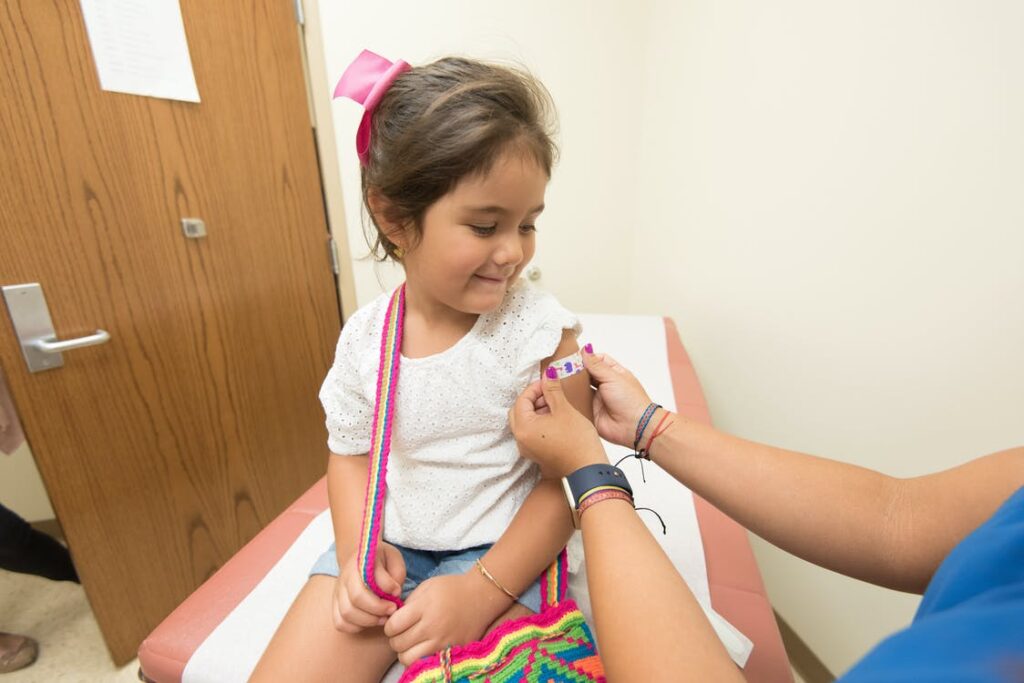
Three Georgia counties appear among the top 20 hot spots for new COVID-19 cases over the past seven days, as compiled Wednesday by the New York Times.
Cases at Fort Benning are evidently still driving high virus numbers in Chattahoochee County, which is No. 3 in per capita rates among counties nationally in the past week, according to the Times’ list.
 Clinch County, in South Georgia, is No. 12. It’s a county that has high levels of poverty and obesity. Health officials in that area link the jumps in new infections to many people not wearing masks or social distancing.
Clinch County, in South Georgia, is No. 12. It’s a county that has high levels of poverty and obesity. Health officials in that area link the jumps in new infections to many people not wearing masks or social distancing.
Bibb County, the home of Macon, is listed at 16th. But Public Health officials there are wondering if the high ranking is partly linked to a messy data problem that occurred Monday, when thousands of test results were suddenly dumped into the state system.
Nevertheless, Bibb has seen high numbers of positive tests, said Michael Hokanson, a Public Health spokesman for the health district. “It’s a variety of things,’’ he said Wednesday. “More community spread. People not following [safety] guidelines. More testing.’’
Some numbers in decline
Overall, the Georgia daily COVID-19 case count has been trending downward. “We are in a decelerating phase right now,’’ Dr. Carlos del Rio, an Emory University infectious disease expert, said this week. “I’d like to be back where we were in June.”
A concern remains that with lower infection numbers, “people will get complacent,’’ del Rio said in a virtual conference sponsored by the Georgia Charitable Care Network.

Hospitalizations for COVID-19 have also declined across Georgia.
But Amber Schmidtke, a public health microbiologist who’s tracking the virus data here, reported that the U.S. Department of Health and Human Services currently ranks Georgia as No. 1 in the nation for the percentage of hospitalized patients who are COVID-19 positive. As of Wednesday, Schmidtke reported Georgia’s patient census indicated that up to 19 percent of all in-patient beds are occupied by virus patients.
Schmidtke also noted Georgia is only at 34 percent of the testing target needed to control the pandemic. The target is set by the Harvard Global Health Institute based on disease transmission, population and other metrics, she added.
And for the second week in a row, a Trump administration assessment of states’ efforts to curb the spread of the coronavirus says Georgia is falling behind most of the rest of the country, WABE reported. It has the second-highest rate of new cases per capita, the White House report said. The New York Times lists Georgia as third, as do data from Johns Hopkins University.
Army seeks to isolate new troops
One of the persistent hot spots is in Chattahoochee County, near Columbus in west Georgia.
The county contains a large part of Fort Benning, an Army post that, among other things, handles basic training for many newly enlisted soldiers. The fort has established strict measures to contain the spread of COVID-19.
Chattahoochee County has 157 cases over the past seven days, the Times reported. A spokeswoman for the Army did not respond to queries from a reporter.

Fort Benning
The post’s commander, Maj. Gen. Patrick Donahoe, told WTVM recently that Fort Benning ‘‘has been at the forefront of our Army’s response to COVID.”
That includes a special protocol when new soldiers from around the nation fly into Atlanta’s airport. They’re greeted there by personnel from Benning, who put them on an Army bus headed straight to the fort.
“You’re not going to interact with anybody on the way down. You’re not going to have any possibility of picking it [COVID] up . . . or if you have it, giving it to somebody,” Donahoe told WTVM. “You’re going to spend 14 days in a reception battalion. We’re going to test you twice while you’re there.”
Back in May, a large group went into an isolation facility after 142 soldiers and trainees tested positive for the coronavirus out of 640 tested over the course of two days.
“When we find someone who’s COVID-positive, we are quickly grabbing that soldier, isolating them from others,” Donahoe said. “If you’re around that new soldier that tested positive, you’re going to go into quarantine and then we’re going to monitor you for 14 days.”
‘Letting their guard down’
Clinch County has had 54 cases over the past week, the Times reported.
Some Clinch residents go to clinics run by South Central Primary Care Center, which operates seven locations in the region.
Its CEO, R.B. Tucker, said Wednesday that much of the general area it serves — Irwin, Ben Hill, Berrien, Coffee, Cook, Lowndes and Atkinson counties – has seen high levels of COVID cases.

Clinch County
About 20 percent of patients tested at the health clinics and at drive-through sites have been found to be infected, he said.
Tucker attributed the case rate to “people not taking precautions, not wearing masks, not social distancing.’’
Tucker himself tested positive in early July, and was hospitalized for a week. “I don’t know how I got it,’’ he said. “I was a mask and Purell [sanitizer] guy.’’
The CEO of Clinch Memorial Hospital, Angela Ammons, told GHN that “we have had our numbers dramatically climb over the last few weeks.’’
She cited school being back in session and “people letting their guard down. Their kids are playing sports, they are going on vacation. Weddings and parties are starting to happen again, and people are determined to regain their social lives.’’
Clinch County has published several public service announcements and worked with local industries to educate the public and increase awareness, Ammons said, adding that the city council in Homerville is considering imposing an emergency mask ordinance.
Data foul-up under investigation
The main health care system in Bibb County said Wednesday that a ‘‘data dump’’ of thousands of COVID-19 test results has prompted an investigation.
Navicent Health said it had hired a third-party vendor to automate reporting of its COVID-19 lab test results to the Georgia Department of Public Health (DPH).
 On Monday, the two systems connected and the vendor submitted a large number of lab test results from The Medical Center, Navicent Health automatically to DPH’s state record system. “The vast majority of these results had already been uploaded to DPH manually, and the reports were duplicated by the automatic upload from the third-party vendor,’’ Navicent said in a statement Wednesday.
On Monday, the two systems connected and the vendor submitted a large number of lab test results from The Medical Center, Navicent Health automatically to DPH’s state record system. “The vast majority of these results had already been uploaded to DPH manually, and the reports were duplicated by the automatic upload from the third-party vendor,’’ Navicent said in a statement Wednesday.
Many of the more than 20,000 test results in the data dump are negative for COVID, and many are duplicates, said Hokanson, the Public Health district spokesman.
“All these lab reports have to be reviewed and compared to data we already have,’’ he said. “This is going to take some time for strings to be untangled.’’
Hokanson’s report Tuesday also noted that aside from the data mess, Bibb has “substantial spread’’ of the disease, with a 9 percent increase in newly confirmed COVID-19 cases among the county’s residents during the current two-week period, versus the previous time frame.




